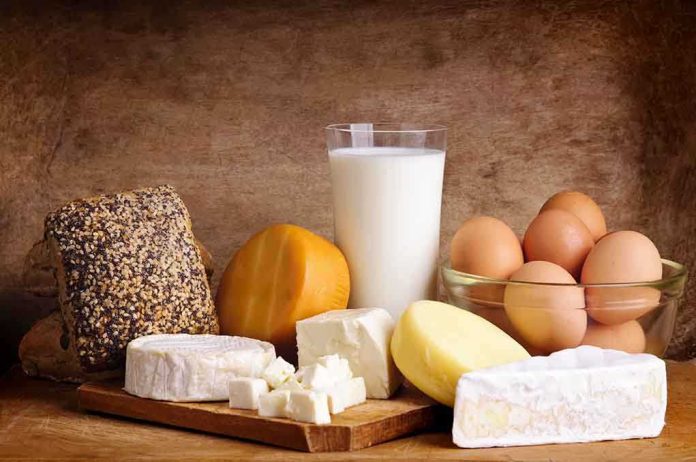
Florida’s recent outbreak of 21 E.coli and Campylobacter cases has sparked renewed debate over the dangers of raw milk consumption.
Story Highlights
- 21 cases of E. coli and Campylobacter linked to raw milk in Florida.
- Raw milk is legal only as animal feed in Florida, yet consumed by humans.
- Florida Department of Health investigating the unnamed dairy farm.
- Public health warnings emphasize risks, especially for vulnerable populations.
Outbreak Traced to Raw Milk Consumption
On August 4, 2025, the Florida Department of Health announced an alarming outbreak of 21 cases of E. coli and Campylobacter infections. These cases are linked to the consumption of raw milk from a farm in Northeast/Central Florida. Among those affected are six children under 10, with seven individuals requiring hospitalization and two suffering severe complications. The outbreak highlights significant public health risks associated with raw milk, which is only legal in Florida when sold as animal feed.
Florida reports 21 E. Coli cases linked to raw milk consumption
Despite longstanding health warnings, some consumers continue to purchase raw milk for personal consumption. The farm responsible for these cases remains unnamed, but its sanitation practices are under scrutiny. This incident underscores ongoing challenges in enforcement and consumer behavior regarding raw milk, which the FDA banned for interstate human consumption in 1987. Yet, state laws vary, allowing sales labeled for animal feed.
Historical Context of Raw Milk Consumption
Raw milk, unpasteurized and direct from the cow, has been a contentious product since pasteurization became the norm in the early 20th century. Pasteurization effectively reduces harmful bacteria, a necessary step after numerous outbreaks linked to milk. However, a growing interest in raw and “natural” foods has increased demand for raw milk, despite clear health risks. The CDC and FDA consistently warn against raw milk consumption, emphasizing pasteurized milk’s safety and equivalent nutritional benefits.
In Florida, consumers bypass legal restrictions by purchasing raw milk labeled as pet food. This loophole poses significant risks, as evidenced by previous outbreaks in the U.S. linked to raw milk, resulting in serious illnesses and deaths. The current outbreak, affecting 21 people, is the largest in Florida in recent years.
Health Authorities and Public Response
The Florida Department of Health leads the investigation and public communication efforts, emphasizing the need for stringent sanitation practices at dairy farms. The CDC reiterates its stance that pasteurized milk offers the same benefits without associated risks. Public health warnings are heightened, particularly for children, the elderly, pregnant women, and the immunocompromised, who are most vulnerable to raw milk’s dangers.
Primary stakeholders include the public health authorities, the unnamed dairy farm, raw milk consumers, and federal agencies like the FDA and CDC. Each plays a crucial role in addressing the outbreak’s impact, with the health department focusing on enforcement and consumer education. The farm’s economic interests and consumer demand for raw food complicate regulatory adherence.
Potential Implications and Industry Impact
Short-term consequences of the outbreak include increased hospitalizations and public concern over food safety. Long-term, there could be regulatory changes, with potential legal action against the farm. The dairy industry may face increased scrutiny and regulation, while the raw milk advocacy movement could encounter renewed challenges due to heightened awareness of health risks.
Economically, the implicated farm might suffer losses, while healthcare costs rise due to hospitalizations. Socially, this outbreak reignites debates between food safety and consumer freedom. Politically, there is pressure on regulators to address loopholes, balancing free market principles with necessary public health protections.







